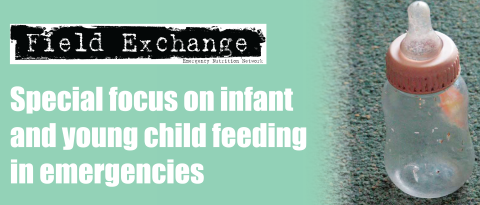Maternal depression and infant growth – review of recent evidence

A mother and child enrolled in a vulnerabilty group feeding programme in Zimbabwe
A recent paper reviews the research over the last 10 years investigating whether there is an association between maternal depression and infant growth impairment. The research focused largely on low income countries where the issue is of high public health importance, given the burden of infant undernutrition.
Eight studies from developing countries, and three from the UK, are described. Cohort studies from both India and Pakistan provided evidence that maternal depression is an independent risk factor for poor infant growth. However, studies from other developing countries are limited and con!icting in their "ndings. The UK-based research suggests that such an association occurs in mothers/infants living in conditions of socio-economic deprivation.
This review discusses the potential mechanisms by which the relationship between maternal depression and infant growth outcomes may be explained, including:
- the effect of infant growth 'failure' upon maternal mood.
- the impact of maternal depression upon health-seeking behaviours during pregnancy and after birth, breastfeeding and mother-child interaction.
- the relationship between antenatal depression and low infant birth weight.
Various economic, socio-cultural and confounding factors are discussed that may explain the variation between results from different settings, including poverty, birth weight, physical health of the mother (e.g. TB, AIDS), maternal anaemia and maternal personality traits. Differences between studies from the UK and Asia support the hypothesis that maternal depression impacts most severely on infant growth in environments that are 'hostile' to successful child rearing (in terms of economic resources, hygiene and healthcare availability). It may also have greatest impact in the youngest infants who are dependent on their mother for nourishment. In conditions of extreme poverty or in areas affected by severe food insecurity, however, the association may be absent - any measurable impact of maternal depression may be swamped by the impact of poverty/lack of food.
The authors conclude there are probably multiple interacting processes mediating the association between maternal mental ill-health and infant nutrition/growth. Further (ideally prospective) studies are needed to answer key research questions. Given the high prevalence of both maternal depression and infant undernutrition, finding an association has significant public health implications. Based on current evidence, the authors recommend that global strategies to tackle infant malnutrition must include strategies that target the mental health of mothers.
Imported from FEX website


